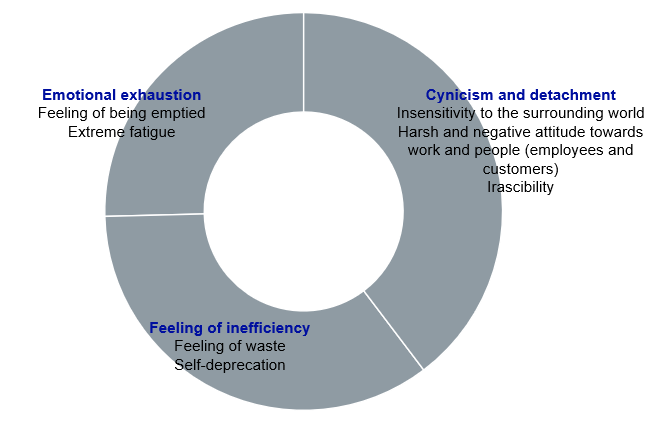Executives : How to protect yourselves from burnout ?
The common perception is that a leader is, at its baseline, a hero. They motivate, support, and solve all problems. But they and those around him lose sight of the fact that they too may need to be motivated or supported. And despite this…
Entrepreneurs are very often on the verge of burning out.
Warning signs
Maslach and Leiter describe burnout as “What happens when burnout strikes you? In essence, three things happen: you feel chronically exhausted; you become cynical and detached from your work; and you feel increasingly ineffective in your
job” (Maslach and Leiter, 1997).

As the saying goes, “Better to be safe than sorry.” If you see these warning signs, it is time to take action.
Step back from reality
Executives devote a great deal of time and effort to the success of their company. They believe in their vision and give their all for its success. They work 50 to 55 hours a week, and weekends are not exempt. As a result, they often have a hard time dealing with unpleasant surprises. The resignation of a close collaborator, the loss of a key contract, or any form of failure can be experienced very negatively.
It is important to take a step back from the hazards and risks associated with being an executive, and not to confuse professional failures with personal ones. Redefine your own identity, outside of your position as a leader.
Time for oneself
It is essential to maintain a balance between professional, social and family life. Unfortunately, these last two aspects are too often neglected, to the benefit of the professional life. For performance’s sake, executives often find it difficult to take a break. As proof, it has been shown that leaders do not get enough sleep, and even if they do, their sleep is not restful because of stress.
The health of your company is not necessarily proportional to the number of hours worked. Take time for yourself, your family, and friends to keep your balance.
Being supported
You have to acknowledge that you can no longer do it alone, that you need a helping hand. This requires a certain humility because it involves admitting that after all, you are not the superhero you thought you were.
Many leaders recognize that coaching would help them better manage their stress. In fact, a coach can greatly help to alleviate the sources of stress, namely:
The loneliness of power Lack of time
The pressure that comes with responsibility
The constant need to improve one’s skills.
The coach, therefore, addresses these four sources of stress. They help you to objectify your decision-making, thus alleviating your feeling of loneliness and responsibility. You review your agenda together to optimize the distribution of your time. They coach you on improving your skills in terms of management and leadership of the company.
Whether you like it or not, the success of a company depends largely on its leader. Even if the delegation tools are well-oiled, it is better to avoid scenarios in which the manager cracks under pressure. It is instead better to be attentive to the first warning signs of burnout and to, consequently, adopt the right habits/attitudes.










